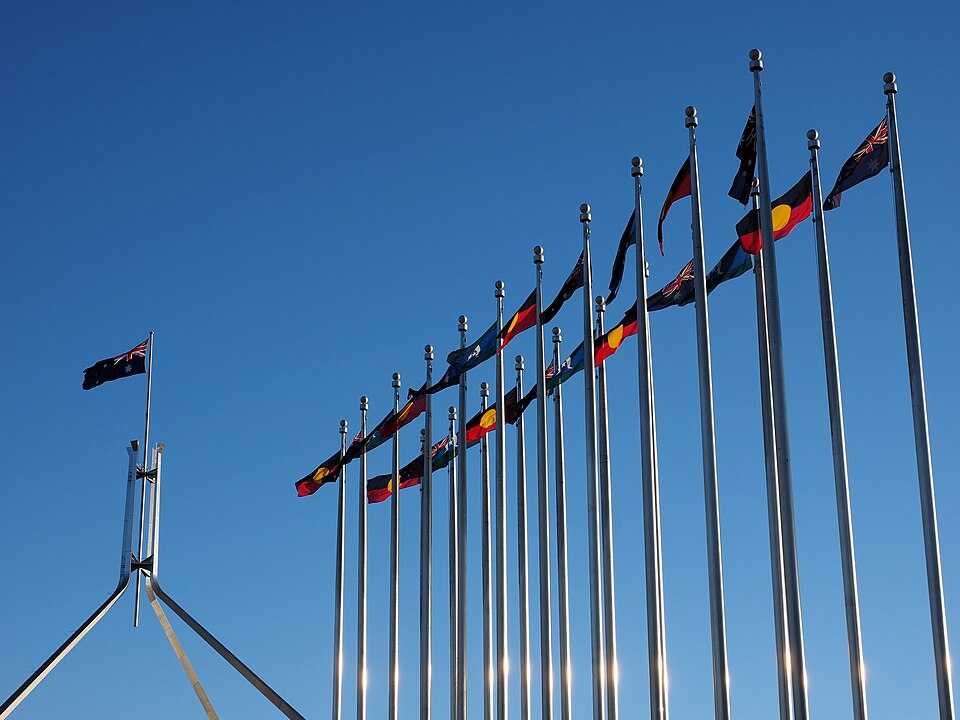This week in Australian foreign affairs: Marles visits new US Defense Secretary Hegseth in Washington D.C.; Wong announces new sanctions against Russian cyber entity and individuals; Marles responds to questions on South China Sea incident, and more.
On 12 February, Deputy Prime Minister and Minister for Defence Richard Marles joined Minister for Foreign Affairs Penny Wong, and Minister for Home Affairs and Minister for Cyber Security Tony Burke to announce “cyber sanctions in response to the 2022 cyberattack against Medibank Private.” The sanctioned entities and individuals include the Russian entity, ZServers and owner, Aleksandr Bolshakov, as well as employees Aleksandr Mishin, Ilya Sidorov, Dmitriy Bolshakov and Igor Odintsov. According to the media release, the criminal cyber group “provided enabling services that supported a range of other cybercrimes, including ransomware activities conducted by affiliates of LockBit and BianLian and other ransomware groups.” The sanctions are the “result of the close collaboration between the Australian Signals Directorate (ASD), other Commonwealth agencies and key international partners, including the United Kingdom (UK) and the United States (US).” These sanctions follow the “Government’s decisive action to sanction Aleksandr Ermakov, announced in January 2024, for his role in the Medibank Private data breach.”
In Washington, Marles spoke to reporters on 8 February on Australia’s relationship with the US and the Trump administration, AUKUS, and the Middle East. Marles remarked that he had “a great deal of confidence about the how the relationship will progress between our government and the Trump Administration.” On AUKUS, and in response to questions about whether Australia would receive the nuclear-powered submarines on time and on budget, Marles replied “We have been working really closely with the US around that, and you heard his comments at the front of the meeting directly in respect of that question. We get the challenges in terms of the rate of production and sustainment of submarines here in the United States. That’s why we are making a contribution to the US industrial base.” On the Middle East and President Donald Trump’s suggestion of clearing Gaza, Marles affirmed that “Our position in relation to the Middle East is clear.” The Australian Government welcomes the ceasefire that is there. “It’s important that the global community is supporting that ceasefire. And in the longer term, our position is in support of a two state solution, which of course, has been the bipartisan position in Australia for a long time.”
On 13 February, Marles spoke to Sky News on the dangerous interaction between Chinese jets and an Australian P-8 aircraft in international airspace in the South China Sea. Chinese J-16 jets flew close to the P-8 and released flares “within about 30 metres.” According to Marles, what’s “important though is that the proximity of the J-16 was so close that there’s no way you could have been able to ensure that the flares did not hit the P-8.” The Government has made “representations about our concerns to the Chinese government.” At the same time, but deemed unrelated, a Chinese task group, including a cruiser, frigate, and tanker, was tracked off the coast of Australia. The frigate traversed across the north of Australia on Tuesday inside Australia’s Exclusive Economic Zone. The Department of Defence ordered the deployment of both navy and air force assets to shadow the vessels, including the ANZAC class frigate, HMAS Arunta. Marles notes that China’s actions were “well within China’s rights.”
Wong announced on 9 February the appointment of Professor Mimi Tang as the Chair of the ASEAN-Australia Centre Advisory Board. Professor Tang will be the inaugural Chair of the centre, established in November 2024 as “part of the Albanese Government’s ongoing work to deepen engagement with Southeast Asia and support the implementation of Invested: Australia’s Southeast Asia Economic Strategy to 2040.” Professor Tang is an immunologist allergist and a “leading expert in food oral immunotherapy.” She is presently Head of the Allergy Immunology Research Group, Director of the Allergy Translation Centre at Murdoch Children’s Research Institute, Professorial Fellow at the University of Melbourne Department of Paediatrics, and a Consultant Immunologist Allergist at the Royal Children’s Hospital in Melbourne. Additionally, she is also CEO and Scientific Founder of Prota Therapeutics—a biotech startup developing treatment for peanut allergy. Tang has several ties to Southeast Asia. The release notes that she “was born in Singapore and spent her early childhood in Malaysia before moving to Australia in primary school. She credits her family’s move to Australia to her father’s involvement as a Malaysian participant of the original Colombo Plan.”
Dr Adam Bartley is the managing editor for AIIA’s Australian Outlook and weekly columnist for The Week in Australian Foreign Affairs. He is a former Fulbright Scholar and non-resident fellow at the Elliot School for International Affairs, the George Washington University. Adam also has positions as post-doctoral fellow at the Centre for Cyber Security Research and Innovation RMIT University and as program manager of the AI Trilateral Experts Group. He can be found on Twitter here.
This article is published under a Creative Commons License and may be republished with attribution.



